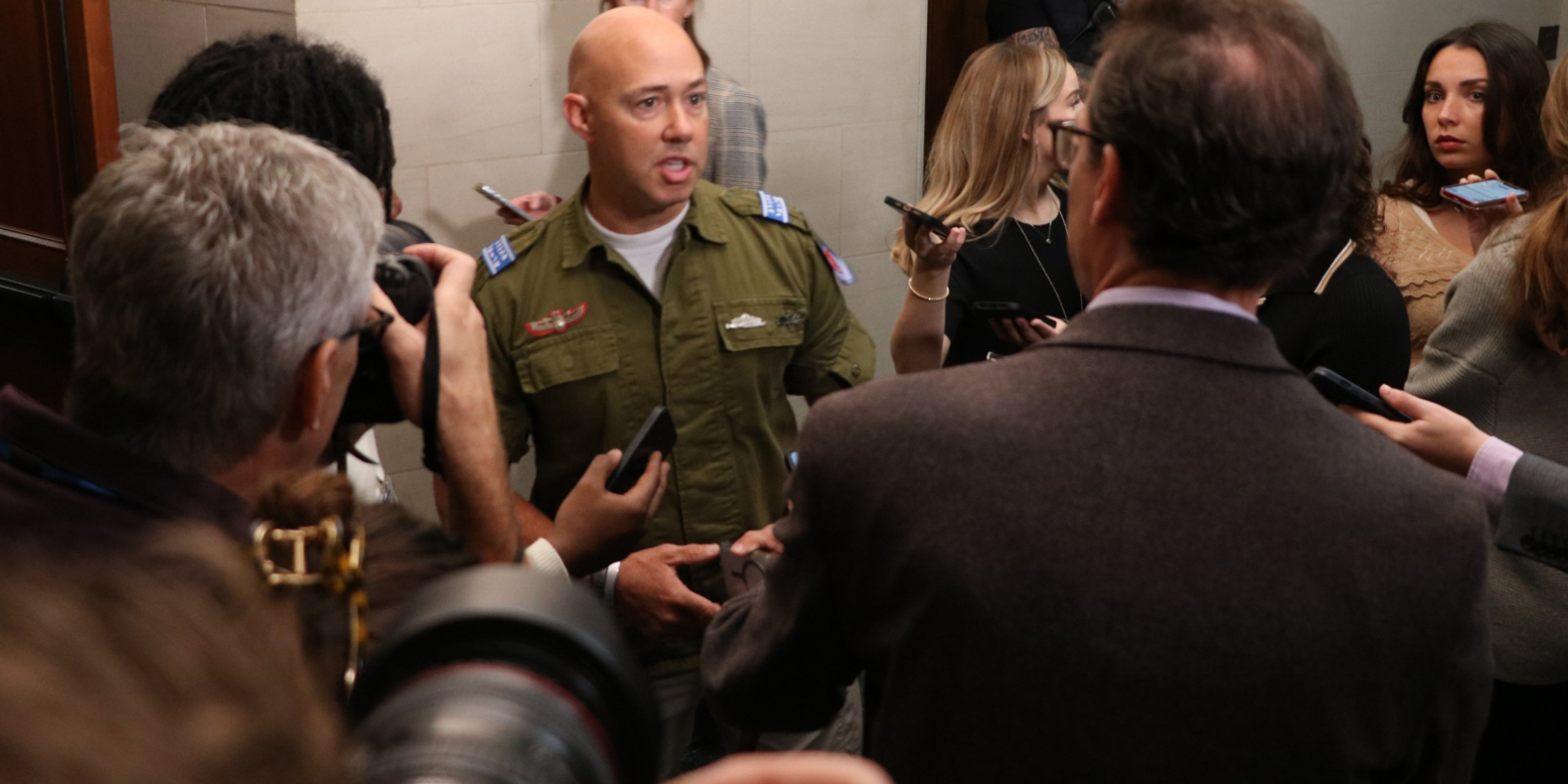House Foreign Affairs Committee Chair Brian Mast (R-Fl.) has instructed GOP committee staffers to refer to the West Bank by its Hebrew name, Judea and Samaria.
Heading one of Washington’s most powerful committees, Mast sent a memo outlining the language change to the nearly 50 Republican Foreign Affairs Committee staffers on Tuesday; Democratic staffers did not receive the request. Mast’s Washington.-based office confirmed the validity of Axios’ reporting in a phone call to RS; the memo sent to staffers has subsequently circulated on social media.
Critically, the memo repeatedly emphasizes Israelis’ right to the West Bank, a territory it occupies illegally, as their homeland.
"In recognition of our unbreakable bond with Israel and the inherent right of the Jewish people to their ancient homeland, the House Foreign Affairs committee will, from here forward, refer to the West Bank as Judea and Samaria in formal correspondence, communication and documentation,” Mast’s memo said.
“As a committee and as representatives of the American people, we must do our part to stem this reprehensible tide of antisemitism and recognize Israel’s rightful claim to the cradle of Jewish civilization.”
Mast’s language change push comes amid a major Israeli offensive on the West Bank, where about 40,000 Palestinians have been displaced in the last month, and a shaky ceasefire in Gaza, in place after Israeli forces killed at least 46,000 Palestinians and wounded 110,000 more in an extended onslaught of the strip, though some death toll estimates are much higher.
Mast’s motion is not the first of its kind. Rather, Sen. Tom Cotton (R.-Ariz) and Rep. Claudia Tenney (R-N.Y.) introduced congressional legislation for the same West Bank name swap last year.
And congressional calls to recognize the West Bank as Israeli are gaining steam in tandem. Tenney asked Trump to recognize the West Bank as Israeli territory in a letter early this week; Reps. Mary Miller (R-Ill.), Randy Weber (R-Texas), Andy Harris (R-Md.), Barry Moore (R-Ala.), and Nick LaLota (R-N.Y.) signed it.
Trump has said he’ll announce his position on the West Bank’s jurisdiction soon. In the meantime, he’s repeatedly floated a controversial riviera plan for Gaza where “the U.S. will take over the Gaza strip” and Palestinians would have to leave, perhaps temporarily or permanently.
A former soldier for the Israel Defense Forces, Mast is one of Israel’s staunchest advocates in Congress. "Over his career, Rep. Brian Mast has received almost $700,000 from AIPAC, according to OpenSecrets.org,” says Dr. Annelle Sheline, Research Fellow in the Middle East program at the Quincy Institute for Responsible Statecraft.
“He served in the Israeli Defense Forces and wore an Israeli military uniform to Congress,” Dr. Sheline said, citing Mast’s IDF post-October 7 uniform stunt at Capitol Hill. “I hope his constituents are asking themselves whose interests he's really committed to: theirs, or Netanyahu's?"
















